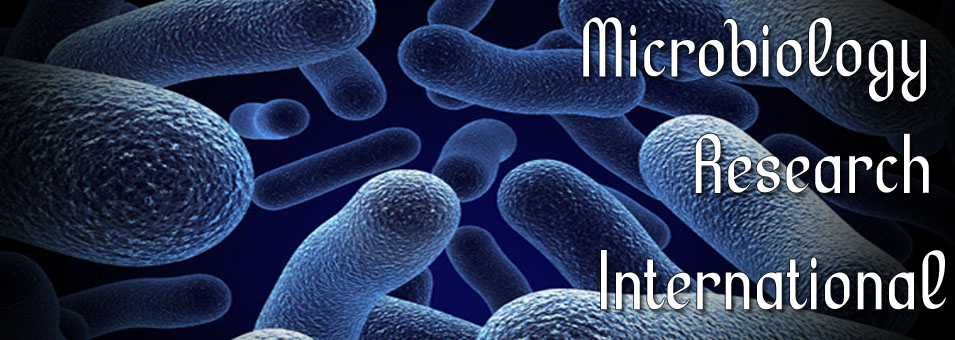Effect of n-hexane and aqueous extracts of cashew nuts on some pathogenic organisms obtained from general out patients, Ibadan, Nigeria
Salami O. O., Atoyebi T. J., Afolabi Q. O., Obisesan L. O. and Obero J. O.Microbiology Research International
Published: December 8 2017
Volume 5, Issue 4
Pages 55-61
Abstract
The antimicrobial activity of n-hexane and aqueous extracts of the nut of cashew fruit Anacardium occidentale L. was investigated on some pathogenic organisms of medical importance using agar well diffusion method. The test organisms are Proteus sp., Escherichia coli, Klebsiella pneumonia, Pseudomonas aeruginosa, Enterococcus cloacae and Acinetobacter baumanii. All the test organisms were identified to be sensitive to the extract at various concentrations (0.10, 0.20, 0.30, 0.40 and 0.50 g/ml) except A. baumanii. The greater the concentration of the extract, the higher the antibacterial activities exerted on the isolates. K. pneumonia was the most susceptible organism to the n-hexane extract followed by P. aeruginosa. The least susceptible to the extract was Proteus sp. while A. baumanii was resistant to the extract. The most susceptible organism to the water extract was P. aeruginosa while the least was E. cloacae. Therefore, it is suggested that the extract could be used as antibiotic which may contribute to the improvement of health care delivery if the active chemical compounds capable of inhibiting the growth of the test bacteria are analysed and compounded into dosage forms for use.
Keywords: Cashew nut, n-hexane, pathogenic, agar well diffusion, antibacterial.
Full Text PDF
